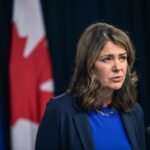As parents across Ontario digest the implications of the province’s contentious Education Bill 33, a wave of concern is spreading through school communities about what many see as government overreach into family rights.
“This legislation opens the door to a significant shift in who guides a child’s development,” says Maria Fernandes, a mother of three from Mississauga who attended last week’s consultation meeting at St. Michael’s Catholic School. “The relationship between parents, schools, and children is delicate. This bill seems to be tipping the balance away from families.”
The proposed legislation, formally titled “The Parental Consultation in Education Act,” has sparked heated debate since its introduction in the provincial legislature last month. While the Ford government frames the bill as strengthening parental involvement, critics argue it actually diminishes parental authority in crucial areas of their children’s education.
At the heart of parents’ concerns is language they describe as troublingly vague about when schools must inform—or may bypass—parents regarding sensitive discussions with their children. Catholic parent groups have been particularly vocal about potential conflicts with faith-based education principles.
“We’re seeing contradictory messages,” notes Patrick O’Donnell, spokesperson for the Ontario Catholic Parents Association. “The government claims this bill enhances parental rights, but the fine print tells a different story. Many sections appear to create pathways for schools to exclude parents from significant conversations about their children’s formation.”
Several provisions have raised red flags among family advocates. Section 4(3) outlines circumstances where educators may determine parental notification is not “in the best interest of the student”—language critics say is subjective and open to broad interpretation.
The Catholic community’s response reflects wider anxieties across various faith traditions and cultural backgrounds. At a recent gathering at St. Augustine’s parish hall, more than 200 parents assembled to discuss potential implications for religious freedom in education.
“Faith isn’t something that happens only on weekends,” explains Teresa Mendes, who has two children in the Toronto Catholic District School Board. “For our family, our Catholic values inform every aspect of how we understand the world. We chose Catholic education specifically because we want those values reinforced throughout our children’s learning.”
Government officials defend the legislation as a necessary modernization that balances competing interests. Education Minister Stephen Lecce has emphasized that the bill “puts parents back at the center of their children’s education” while providing appropriate safeguards for vulnerable students.
However, policy analysts note tensions in these competing claims. Dr. Eleanor Wright from the Canadian Education Policy Institute points to contradictions in the bill’s language. “The legislation begins by affirming parental primacy in education, but then creates numerous exceptions that could significantly limit that very principle,” she explains. “The devil is always in the details with education policy.”
Recent polling suggests the government may have misjudged public sentiment. A survey by Mainstream Research found that 64% of Ontario parents express concern about provisions that might limit their awareness of significant conversations happening at school, while 71% believe parents should be the primary decision-makers in matters related to their children’s moral and social development.
For Janet Wu, who immigrated from Taiwan twelve years ago and now has children in grades 2 and 5, the legislation triggers concerns about cultural disconnection. “In our tradition, family guidance is sacred. We came to Canada for opportunity, not to have the government step between us and our children,” she says. “I’m worried this bill creates distance between generations in immigrant families who already face challenges staying connected.”
The Catholic Register has reviewed documents obtained through Freedom of Information requests that show internal ministry discussions acknowledged “potential friction points with religious communities” during early drafting stages. These records suggest ministry staff recognized that certain provisions might conflict with constitutional protections for denominational schools but proceeded with the current language despite these concerns.
Constitutional experts note the delicate balance at play. “Ontario’s education system must navigate complex terrain,” explains Professor Michael Thorburn of Osgoode Hall Law School. “The Catholic school system enjoys certain constitutional protections, but defining the precise boundaries of those protections remains an ongoing legal conversation.”
As the legislative process continues, parents are organizing across the province. Community halls, church basements, and school gymnasiums have become gathering points for concerned families. What began as scattered local meetings has evolved into a coordinated movement with letter-writing campaigns, delegation appearances at school board meetings, and plans for a major rally at Queen’s Park next month.
The Ontario Association of Parents in Catholic Education has created resources to help families understand the bill’s potential implications. Their analysis highlights specific sections they believe could undermine the distinctive character of Catholic education guaranteed under the Constitution Act.
“This isn’t just about one policy disagreement,” says Father Marcus O’Malley, education director for the Archdiocese of Toronto. “It’s about whether we truly respect that parents are the first and primary educators of their children. Any legislation should strengthen—not weaken—that fundamental relationship.”
As debate continues, many parents express frustration about feeling caught between political agendas. “Our children aren’t political footballs,” says Rodrigo Sanchez, a father of four from London, Ontario. “We just want transparency about what’s happening at school and respect for our role as parents. This shouldn’t be controversial.”
The bill faces several more legislative stages before potential passage, with committee hearings expected to begin next month. Whether the government will amend the language to address mounting parental concerns remains to be seen.






